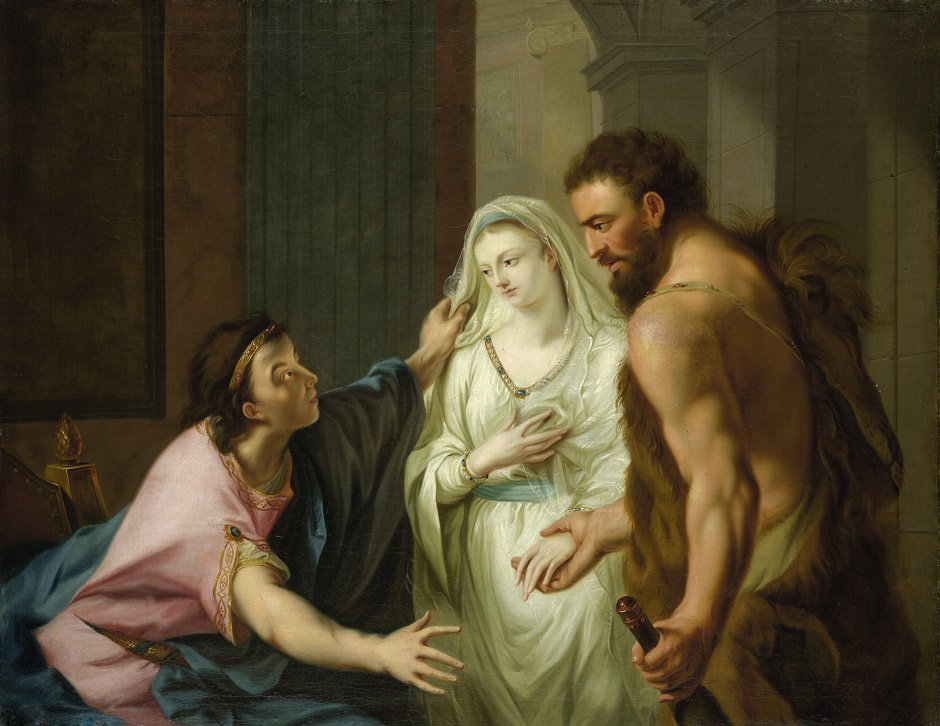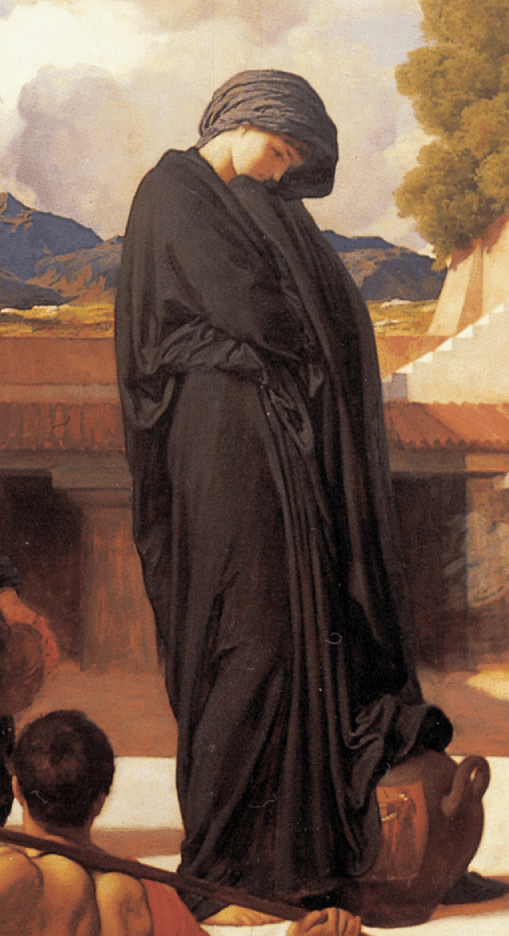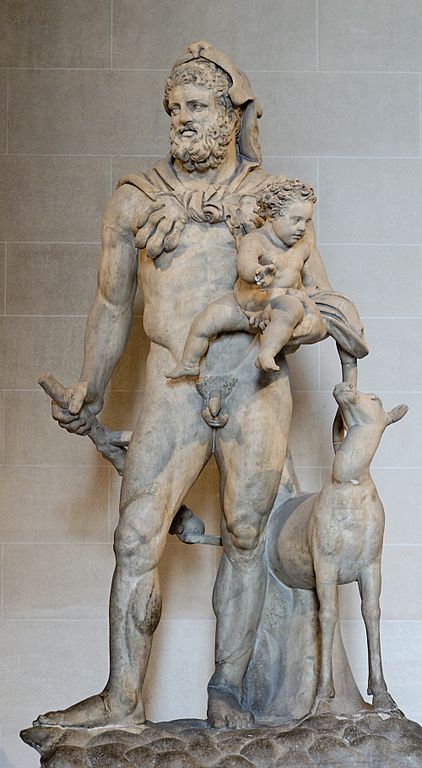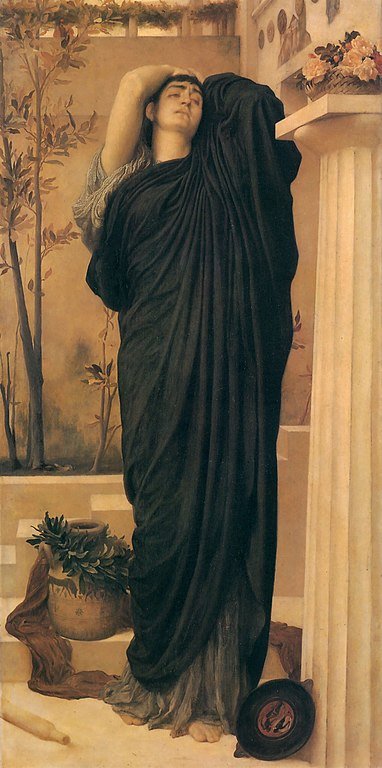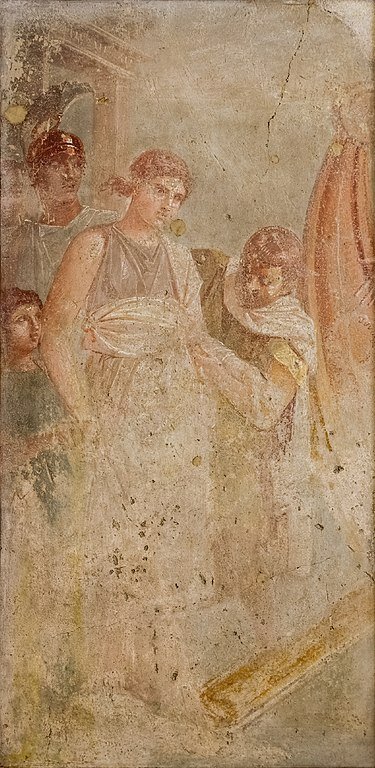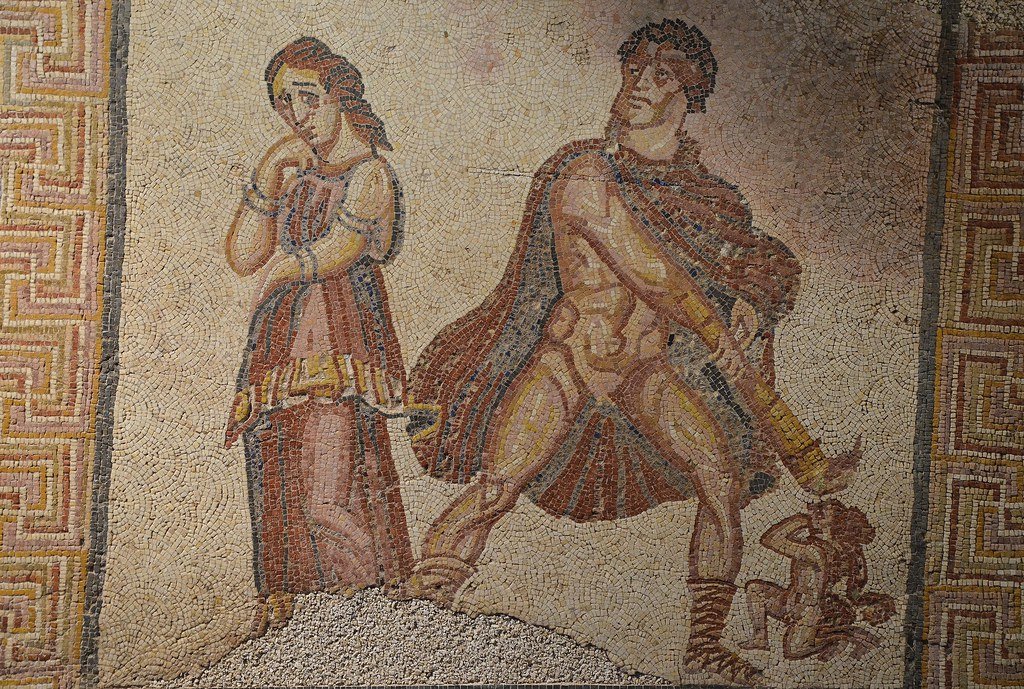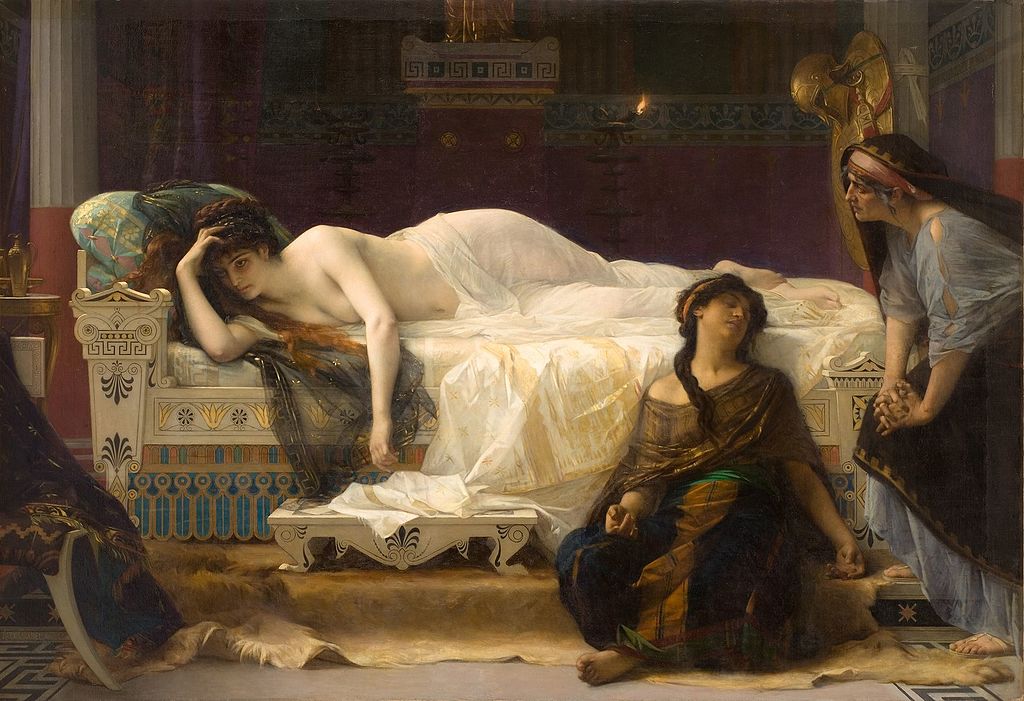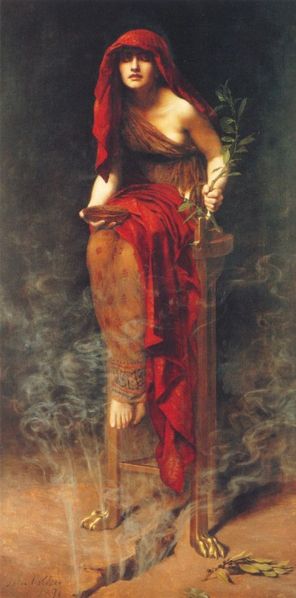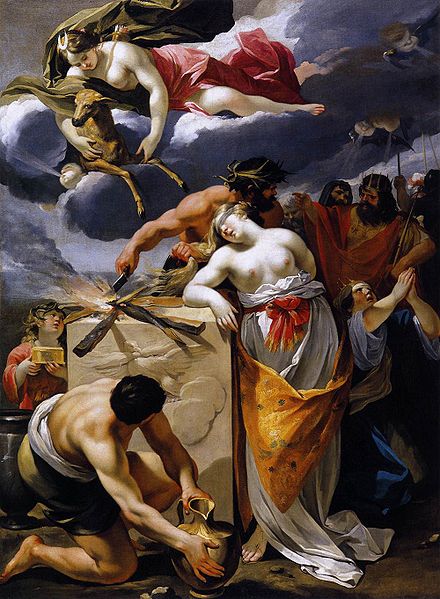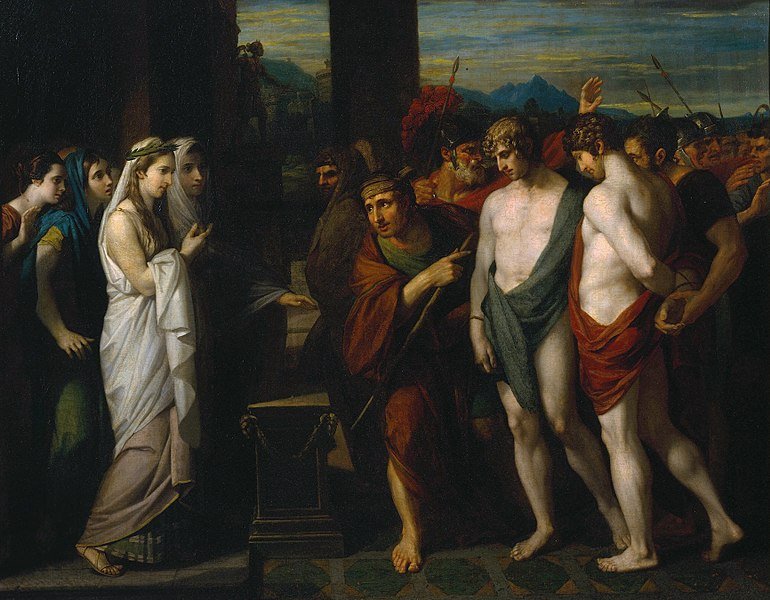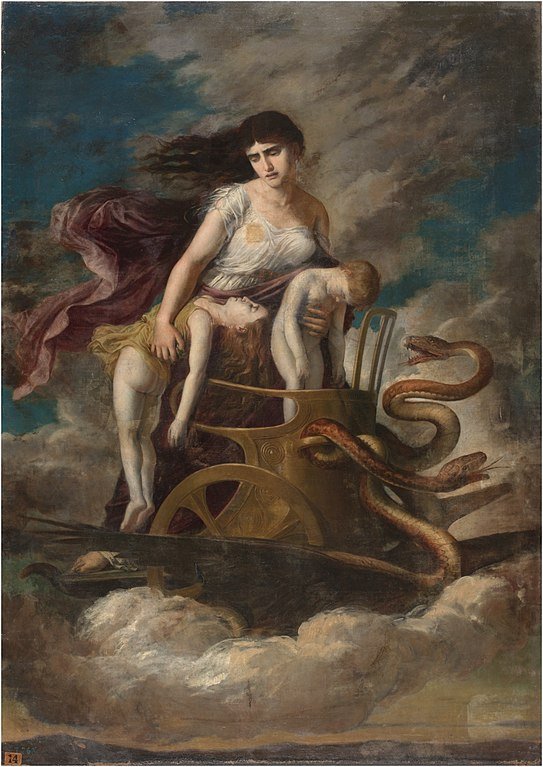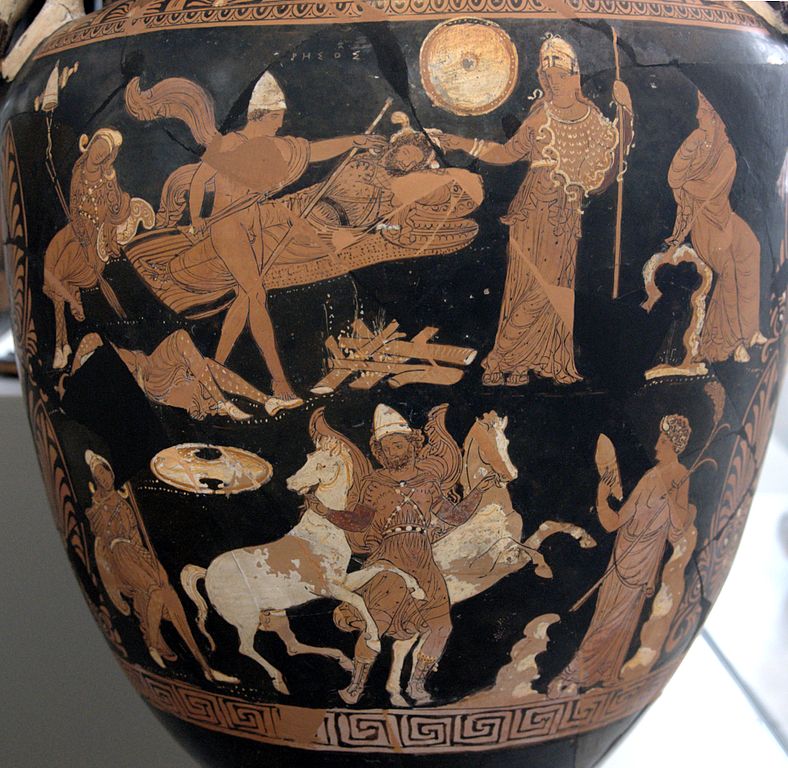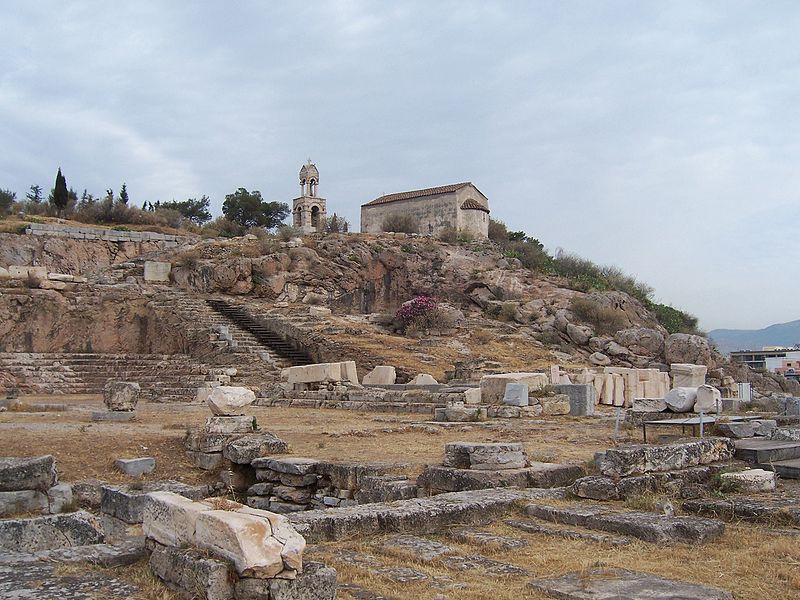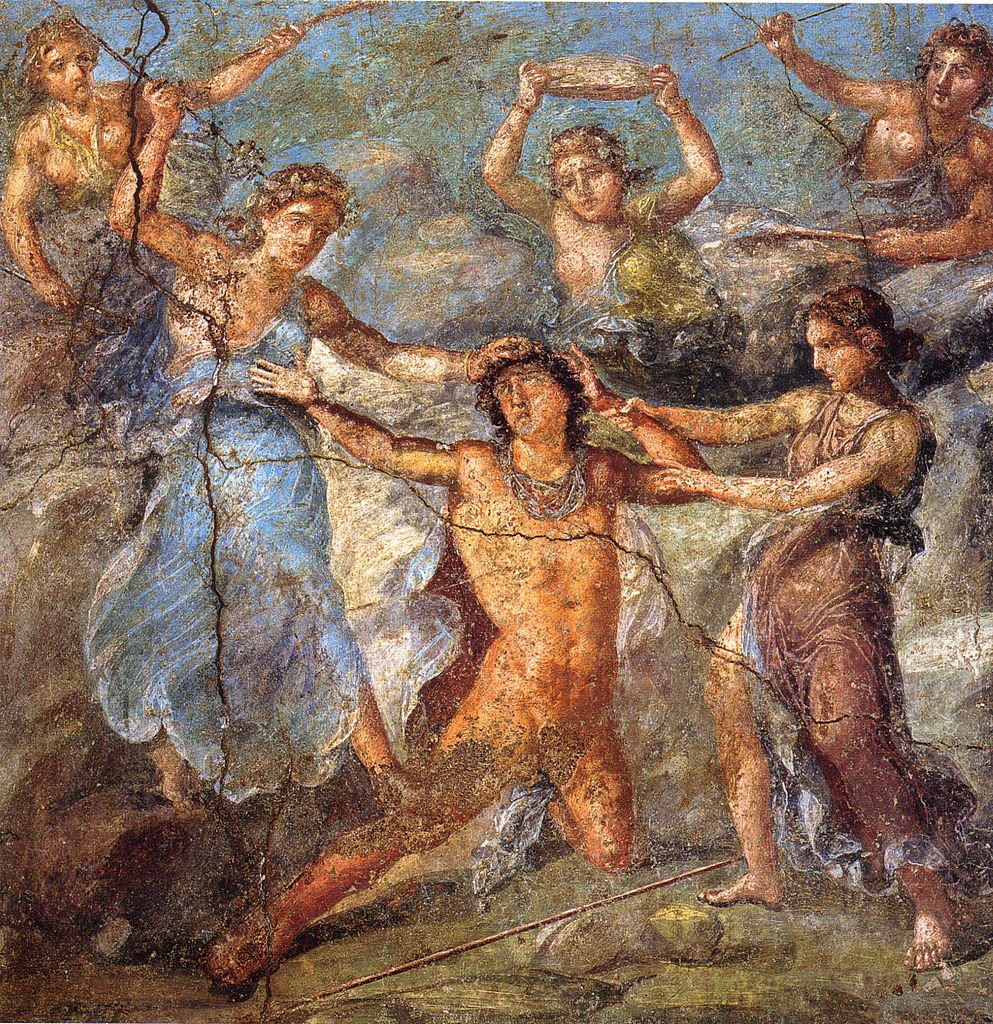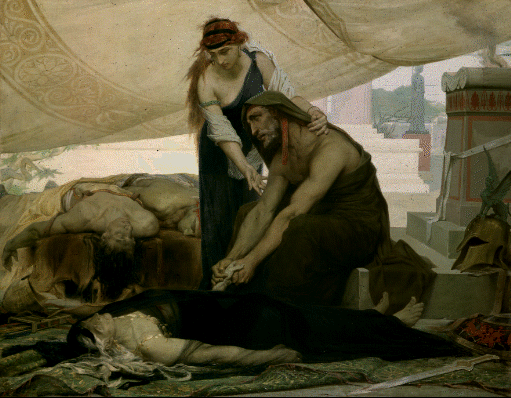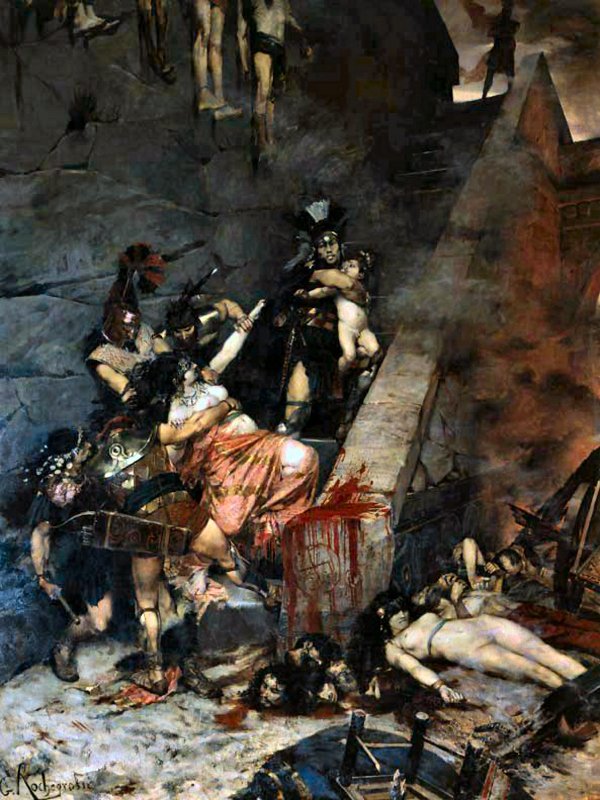Euripides
Born (most probably) in 480 BC, the year of the Battle of Salamis, in the eastern suburbs of Athens, Euripides was the last and most rebellious of the three great Ancient Greek tragedians. He debuted in the year of Aeschylus’ death (455) and won his first victory 14 years later with an unknown tragedy. He won the first prize three more times during his life, and once posthumously – with a tetralogy produced either by his son or nephew named Euripides that included Iphigenia in Aulis, Alcmaeon and Bacchae. Most probably, all of these plays were written at the court of King Archelaus of Macedon, where Euripides was either exiled or chose to retire soon after producing Orestes in 408. Even though most ancient sources ascribe 92 plays to Euripides’ name, 4 of them seem to have been dubious even to ancient scholars. Out of the remaining 88, 14 were probably lost even when the Alexandrian librarians decided to catalogue them in the third century BC, and only 19 have survived complete to this day. One of these (Rhesus) is spurious, one (Iphigenia in Aulis) was certainly left unfinished by Euripides, and a third one (Cyclops) is the only complete satyr-play to reach us in entirety. Even though Euripides wasn’t very successful during his lifetime—he won 8 victories less than Aeschylus and 13 less than Sophocles—the very things that might have made him unpopular in fifth-century Athens (his skepticism and unconventionality, as well as his conceivably radical views on war, religion and patriarchy) resonate loudly with audiences today, and it is not an exaggeration to say that he is considered the most modern and most individualistic of all three great tragedians.
Euripides’ Life and Works
Life
Euripides, the son of Mnesarchus (or Mnesarchides) and Cleito, was born sometime between 485 and 480. The Parian Chronicle—a Greek chronology inscribed on a stele that covers the years from 1582 BC to 299 BC—gives the earliest of these years as the date of Euripides birth; the longest section of his Alexandrian biography, the Suda, and the medieval Life of Euripides written by Thomas Magister all claim that Euripides was born in the year of the Battle of Salamis, 480 BC.
During Euripides lifetime, it was alleged—primarily by Aristophanes, but also by most of his ancient biographies—that he was of lowly origin, and that his father had been a shopkeeper, and his mother a vegetable-seller. However, there is evidence that, even as a boy, he participated in prestigious cultic activities: Theophrastus, for example, supposedly wrote in his On Drunkeness that Euripides poured wine for the dancers of Apollo in Phlya. This would have been almost impossible if he hadn’t belonged to some of the leading families of his native deme. Moreover, a story told by Aristotle in his Rhetoric reveals that Euripides had a dispute with a certain Hygiaenon over a “liturgy,” which, once again, wouldn’t have been possible if Euripides wasn’t a wealthy man.
During his life, Euripides was married twice—to Choerile and Melito—and allegedly both of his wives were unfaithful to him. He had three sons with the latter: Mnesarchides, a merchant; Mnesilochus, an actor; and his namesake, Euripides, who was a man of letters and may have produced some of his father’s plays posthumously. Whether because of his unhappy marriages or his interest in serious topics, Euripides was supposedly “sour to talk to” (Aristophanes) and despised laughter, bearing a sullen countenance, and having grave and austere character. He was most probably one of the first known bibliophiles in history: Aristophanes—who often mocked Euripides—claims in his play Frogs that Euripides was a lover and collector of books, and one of Euripides’ choruses (from his fragments) describes leisure reading as one of the few consolations of his old age.
In his seventies—probably in 408 or 407—Euripides accepted an invitation to the court of Archelaus, king of Macedon (413–399). There, he wrote Archelaus in honour of his host, but died soon after, probably killed by his first Macedonian winter (though ancient accounts tell outrageous stories about his death). They say that at the following City Dionysia, Sophocles, out of respect, donned a dark cloak for his tetralogy and brought the chorus and the actors onstage with no garland; there were few in the audience who could hold back their tears. “If truly the dead had perception,” said supposedly Philemon, “I would have hanged myself so as to see Euripides.”
Plays
Even though there are many accounts of Euripides’ life written in the ancient world (and reworked later, during medieval times), most of them seem not only unreliable, but also based on obvious parodies of Euripides by Aristophanes and later comedians. “In truth,” writes Alan Sommerstein in view of this fact, “all we really know of Euripides’ life is his dramatic career.”
His debut is traditionally set in the year of Aeschylus’ death, 455, and his first victory, fourteen years later, in 441. Most biographers agree that Euripides was victorious three more times before his death, and once immediately after, through his son. Altogether, he was the author of as much as 92 plays, though 4 of them were deemed questionable even by ancient scholars. Out of the rest 88, Alexandrian librarians seem to have had the luxury of studying the texts of no more than 74 genuine plays, 7 of which were satyr-plays. Because one typical production for the City Dionysia consisted—for most of the fifth century—of three tragedies and a satyr play, most of the missing 14 plays must have been satyric.
18 tragedies and 1 satyr-play transmitted under the name of Euripides have survived complete to our days. However, one of the tragedies, Rhesus, is most probably not Euripidean, and another, Iphigenia in Aulis, was almost certainly left unfinished by Euripides and was subsequently heavily edited and patched for a posthumous production. The satyr-play, titled Cyclops, is the only complete satyr-play that has reached us, and our main source for understanding how the final play in a typical Ancient Greek tetralogy looked like.
Thanks to diligent ancient introductions (hypotheses) and other reliable sources, we know the exact dates for most of Euripides’ plays, and even in the case of the others, we can usually guess it with reasonable degree of certainty. When arranged chronologically, Euripides’ plays reveal “a clear and consistent tendency towards greater freedom in the structure of the iambic trimeter, restriction after restriction being progressively relaxed or abandoned” (Alan Sommerstein). It is interesting to note pretty much the same evolution can be observed in the iambic pentameter of Shakespeare, whose late interests ostensibly mirror those of the old Euripides: instead of tragedies, both authors, in their late careers, seem more interested in writing melodramatic romances with a lot of intrigue and a happy, rather than sad, ending.
Legacy
Unlike Aeschylus or Sophocles, Euripides was not really successful in his own lifetime: his five victories (including the posthumous one) compare unfavorably to Aeschylus’ 13 and Sophocles’ 18. However, in the fourth century, the fame of Euripides suddenly eclipsed that of his more celebrated predecessors. It is because of this that far more plays and information about Euripides have reached us. In addition, because Euripides became a favorite source for ancient mythographers, the chances are high that many of the “more theatrical” tales told by Hyginus and Apollodorus are, in fact, retellings and summaries of lost Euripidean plays.
And that is almost paradoxical, considering the fact that out of all the great ancient tragedians, Euripides seems like the one least interested in the more canonical versions of the inherited mythical tales. In fact, he seems more appealed by the opposite: constantly surprising and provoking the audience with unexpected and immensely heartbreaking twists, because of which Aristotle dubbed him “the most tragic of all poets.” Some of the boldest among these twists include Medea willfully killing her children (in earlier versions, she either kills them by accident or finds them murdered by the Corinthians), and Pentheus being torn apart by his mother and aunts (in earlier versions, he was killed during a war between the Maenads and the Thebans).
It is said that this kind of innovations in plot cost Euripides a few first places—most notably, Medea won the third prize in 431—but, arguably, it is primarily because of them that he was rapidly elevated to the top of the Ancient Greek tragic pantheon at the beginning of the twentieth century. Dubbed “the enfant terrible of classical times,” he was seen by the leading dramatists of the time—such as Henrik Ibsen and George Bernard Shaw—as radical in his views, whether on religion, war, or the position of women in society. Ironically, a man who was deemed a misogynist by ancient authors (supposedly spurred in this direction by the infidelity of his two wives), a playwright who wrote at least two obviously patriotic plays (Children of Heracles and The Suppliants), and a wealthy Athenian citizen who was almost certainly part of several religious ceremonies during his life suddenly became an icon of early atheistic and proto-feminist movements. But, then again—at least today—it is difficult to read some of Euripides’ verses without getting such an impression of him. Whether it is historically correct as well is almost beside the point.
Chronology of Euripides’ Life
• 480 – born to Mnesarchus (or Mnesarchides) and Cleito in the deme of Phlya
• 455 – debut at the City Dionysia with a tetralogy that included Peliades
• 441 – first victory at the Dionysia with an unknown tetralogy
• 438 – finished second to Sophocles, with Cretan Women, Alcmaeon in Psophis, Telephus, and the surviving Alcestis
• 431 – finished third to Euphorion and Sophocles with a tetralogy that included the surviving Medea, Philoctetes, Dictys, and The Harvesters
• 430 – the most probable date for the first production of Children of Heracles
• 428 – beat Iophon and Ion for another victory at the Dionysia; the tetralogy included Hippolytus, an updated version of an earlier play of the same title
• 425 – most probable date for the first production of Andromache
• 424 – most probable date for the first production of Hecuba
• 423-420 – the most probable period for the first production of Suppliants
• 420-419 – the most probable date for the first production of Electra
• 416 – the most probable year for the first production of Heracles
• 415 – finished second to Xenokles, with Alexandros, Palamedes, the surviving Trojan Women, and Sisyphus, a satyr-play
• 414 – the most probable year for the first production of Iphigenia in Tauris
• 412 – production of Helen and Andromeda and, possibly, Ion as well
• 410 – most probably, the first production of The Phoenician Women
• 408 – production of Orestes
• 408 – visit to the court of king Archelaus of Macedon
• 407 – death in Macedon
• 405 – posthumous victory through his son, with Iphigeneia in Aulis, Alcmaeon, and Bacchae
Euripides Sources
The narrative of the Alexandrian Life of Euripides is not continuous: as Sarah Burges Watson explains in her excellent article “Euripides: Guide to Selected Sources”, one section of this Life seems like a summary of two (this one and this one) that probably derive from a common Hellenistic source and are more reliable than the final two sections (this one and this one) which contain material from a late third-century biographer called Satyrus. On the right margin, Wilson’s “Guide” offers links to original versions and translations of all essential ancient sources for Sophocles’ life and works, including Euripides’ biography in the medieval encyclopedia, the Suda (available, with many helpful annotations, here as well). For a more modern biography with links to relevant sources, consult David Kovacs’ article in the Perseus Encyclopedia.
Link/cite Euripides page
Written by: The Editors of GreekMythology.com. GreekMythology.com editors write, review and revise subject areas in which they have extensive knowledge based on their working experience or advanced studies.
For MLA style citation use: GreekMythology.com, The Editors of Website. "Euripides". GreekMythology.com Website, 30 Jan. 2020, https://www.greekmythology.com/Plays/Euripides/euripides.html. Accessed 26 April 2024.

